Echoing with a bang from my office TV set right before me is this familiar British styled narration of a certain investigative reporting by a reporter from the Skynews cable television- one of the World’s most credible news outlets.
The item of their journalistic focus as I put pen to paper today, was precisely the frantic search for what the British parliamentarians do with cash that drops in from their political donors.
This report is all about letting us know that Great Britain practices Open Government Partnership which highlights the imperative of public officials adhering to the tenets of transparency, accountability and full disclosure of information on how public money is spent.
Fantastic as the investigative report sounded to me as a professional journalist, but as a Nigerian, I was actually focused on something else- a very terrible crime that happened not far away from where I was seated in Garki two Abuja, scribbling away this reflection in my office.
That seemingly unfathomable crime was a direct consequence of hard drug addiction by some three young students.
Well, as I thought deeply about why three university students could take away the precious life of another youth all because the three who were on hard drugs had no money to pay their victim for his services which he rendered to them as a cabman, I recollected that there is a nexus between this incident and the productive speech of deep thinking by President Ahmed Bola Tinubu few days back which I consider as a Masterstroke on how to tackle the effects of hard drugs addiction.
We will get to that soon.
Speaking about the President’s Masterstroke on confronting hard drug addictions, takes me to recollecting the fact that this struggling young Bolt driver murdered by these three drug addicts, never knew he actually drove his customers to pick up some more hard drugs somewhere in Abuja which drove them into overdrive of insanely deciding on their unfortunate trajectory.
The President of Nigeria spoke about the need for effective rehabilitation of drug addicts and avoidance of stigmatisation of these persons. Ironically, the University whereby these killers came from, spoke to the same issue of rehabilitation which we will very soon come to see as we progress.
However, to think that this dastardly criminal act occurred barely days after the President, Ahmed Bola Tinubu, made some scintillating but deep thinking statements on what the society should do to rehabilitate hard drug addicts, offers us the rare privilege of once more appreciating the urgency of taking concrete steps to roll out comprehensive drug rehabilitation programmes and to give adequate funds to the National Drugs Law Enforcement Agency for this singular purpose. Luckily, Nigeria has a very active and patriotic head of the NDLEA at the moment in the person of Brigadier-General Mohammed Buba Marwa.
As stated above, the President’s speech at that event by the NDLEA was indeed a product of deep thinking. And on the issue of deep thinking, we recall that Daniel Kahneman, in his book, ‘Thinking Fast and Slow’, posits that we use two primary modes of thinking in order to process information and make decisions – System 1 and System 2.
System 1 is intuitive, unconscious, instant, automatic and emotional while System 2 is slow, rational, reasoning, conscious, reflective and deliberate.
Our active thoughts and actions vary depending on what mode is running. Slow, deliberate, logical and focused thinking is often used in solving complex problems. That type of thinking – deliberate thinking – is more reliable but we don’t usually stop to reflect and make slow decisions because our responses are automatic.
Because of that, we need to hone our thinking skills. Let’s go over what exactly it takes to think deeply about complex problems; and the multiple levels of thought that are involved.
The author then went into some details on Shallow vs. Deliberate Thinkers and told us as follows: Most our decisions in life are administered by our life experiences or the mental models we develop over the years (how we have been taught to think at home and at school). That is how we make sense of the world we live in.
The problem arises when we limit ourselves to just that thought process. That is what shallow thinkers do.
Shallow thinkers do not think beyond the immediate and the observable. They usually take information at face value and only look at immediate consequences.
They are not capable of looking at all sides of an issue or think deeply about the issue before making decisions or drawing conclusions – they solve a problem with one solution. And they typically believe they are right.
They also believe that their opinion is based on deep thinking because they genuinely believe that their opinion is based on truth and facts.
Whereas, deep thinkers look at the whole sequence of events and the consequences, the author concluded.
And so on that deep thinking speech of the President we recall that he spoke at an event organised by the very vibrant National Drugs Law Enforcement Agency (NDLEA) headed by Brigadier-General Mohammed Buba Marwa who ironically handed over Lagos state to the man who is today the President of Nigeria at the time General Marwa was on his way out as military Administrator and he, Bola Ahmed Tinubu was coming in as the democratically elected governor of Lagos state.
Besides, this blood letting by the three university undergraduates, happened in Abuja almost at the same time that in far away Port Harcourt, Rivers state, the Director General of National Youth Service Corp was warning youth Corpers to absolutely say No to hard drugs.
Already, the management of Bingham University has declared that it has zero tolerance for drugs and other vices on the institution’s campus.
Director of Public Affairs of the University, Mr Daburi B. Misal articulated the position of the institution in a press release issued on Monday.
“The attention of the Management of Bingham University has been drawn to a news report making the rounds on social media on 3 suspended students of the University being paraded by the authorities of the Abuja Police Command on the alleged killing of one Obasi Okeke, a Bolt driver over a scuffle on transport fare of their trip to a destination in Abuja.
“The Management of the University hereby expresses its profound sadness over the development and states that the affected students were in March 2023 identified through the University’s zero tolerance policy on drugs and suspended from the university for being in possession of Marijuana and other illicit substances.
“As required by our regulations, the students should have been taken to a rehabilitation centre by their guardians and would be taken back to the University only after certification by the University’s Psychiatrist. It was therefore shocking to see that students who were supposed to be in rehabilitation were being paraded by the Police in Abuja. While the University maintains zero tolerance for vices, the responsibility of bringing up children is a shared responsibility. The University will however continue to do its best to put them on the right path.”
Also, the Director-General, National Youth Service Corps, Brig.-Gen. Yusha’u Ahmed, at the Weekend warned the 2023 Batch ‘B’ Stream One corps members to stay away from cultism and drug abuse, especially in the orientation camp.
He stressed that anyone who violates the scheme’s rules and regulations would be appropriately sanctioned.
Ahmed gave the warning on Friday in a nationwide address to the corps members, who recently began their orientation exercise across the country.
As aforementioned, President Bola had said his administration would work closely with the National Drug Law Enforcement Agency and its international partners to fight the menace of drug abuse.
He urged stakeholders to take a people-centred approach to address drug addiction, saying addicts are also humans who deserve understanding and support to recover from the downward path of drug abuse.
“I want to assure everyone, including our local and international partners, of this administration’s unwavering support for the sustenance of drug control efforts,” Tinubu said in his opening address at the national conference to mark this year’s International Day Against Drug Abuse and Illicit Drug Trafficking, at the State House, Abuja.
The President, who was represented by the Secretary to the Government of the Federation, George Akume, said interventions to address drug use and its associated consequences must recognise the individual and address the social stigma that comes with the menace.
Speaking of persons struggling with drug abuse, the President said, “These groups often face barriers in accessing health care and social services within society to address their drug use problems.
“Therefore, interventions to address drug use and its associated consequences need to be mindful of the fundamental individual. Stigma, both social and structural, which is one of the commonest barriers to access support and services must be removed.”
He urged stakeholders to educate themselves and others on the dangers of drug abuse and the need to stop stigma and discrimination.
As we digest this President’s Masterstroke on the handling of drug addicts, one important reminder to His Excellency Mr.President is to say that rehabilitation of drug addicts is highly capital intensive just as the budgetary appropriation to the NDLEA is grossly insufficient to handle this arduous task making it imperative that we advocate the granting of financial and operational autonomy to NDLEA.
I will conclude with just one example of how much it costs the government of the USA to rehabilitate drug addicts. For instance, around September 24th 2012, www.drugfysrehab.com quoted the popular Cable News Network’s programme CNNmoney as releasing a mind-boggling statistics to the effect that yearly, the cost of prescription drug abuse is about 70 billion US Dollars. Approximately, 44 billion USD of the aforementioned amount is lost in productivity with another 8.2 billion USD only coming from justice costs. And addicts who shop around for doctors cost insurers 10,000 USD to 15,000 USD per person per year.
Dear Mr.President, rehabilitating drug addicts is a billion dollar project just as I end this article by thanking you for your deep thinking as earlier specified and to conclude by urging you, your government, the private sector and the international funding partner organisations to do all within their financial wherewithal or rather power/might to support the efforts of NDLEA in rehabilitating drug addicts.
I’m one of those Nigerians who are waiting to applaud President Ahmed Bola Tinubu should the six drug rehabilitation centres by the NDLEA be completed and commissioned timeously by President Ahmed Bola Tinubu.
EMMANUEL ONWUBIKO is head of the HUMAN RIGHTS WRITERS ASSOCIATION OF NIGERIA (HURIWA) and was a NATIONAL COMMISSIONER of the NATIONAL HUMAN RIGHTS COMMISSION OF NIGERIA.






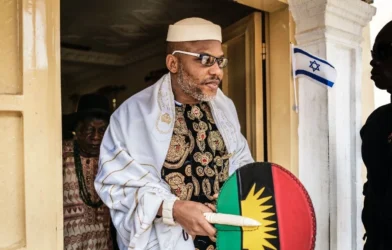
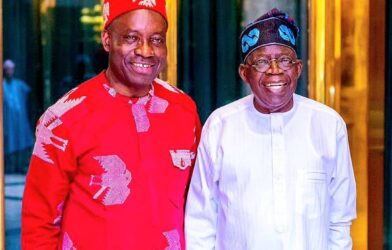
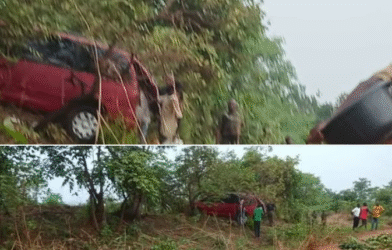

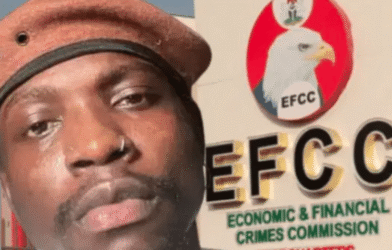
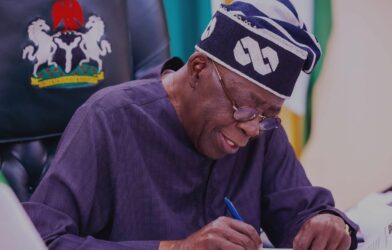
Comments are closed